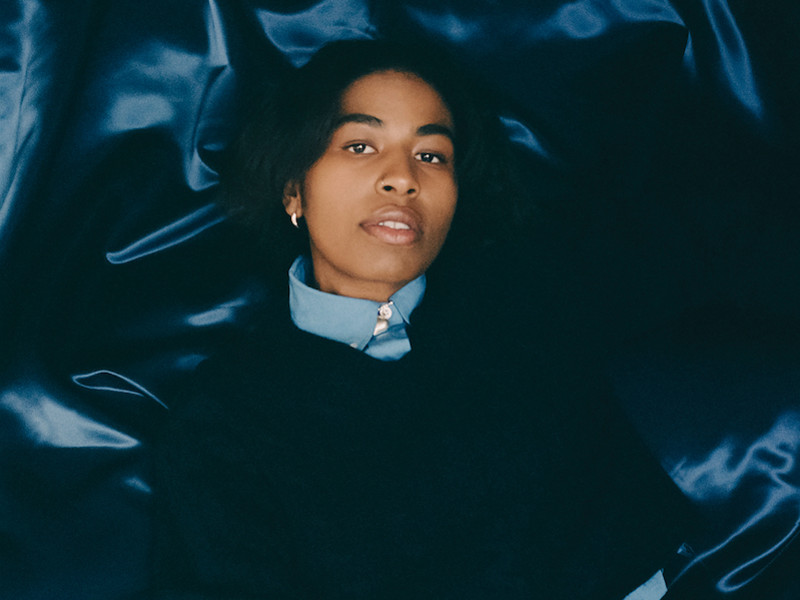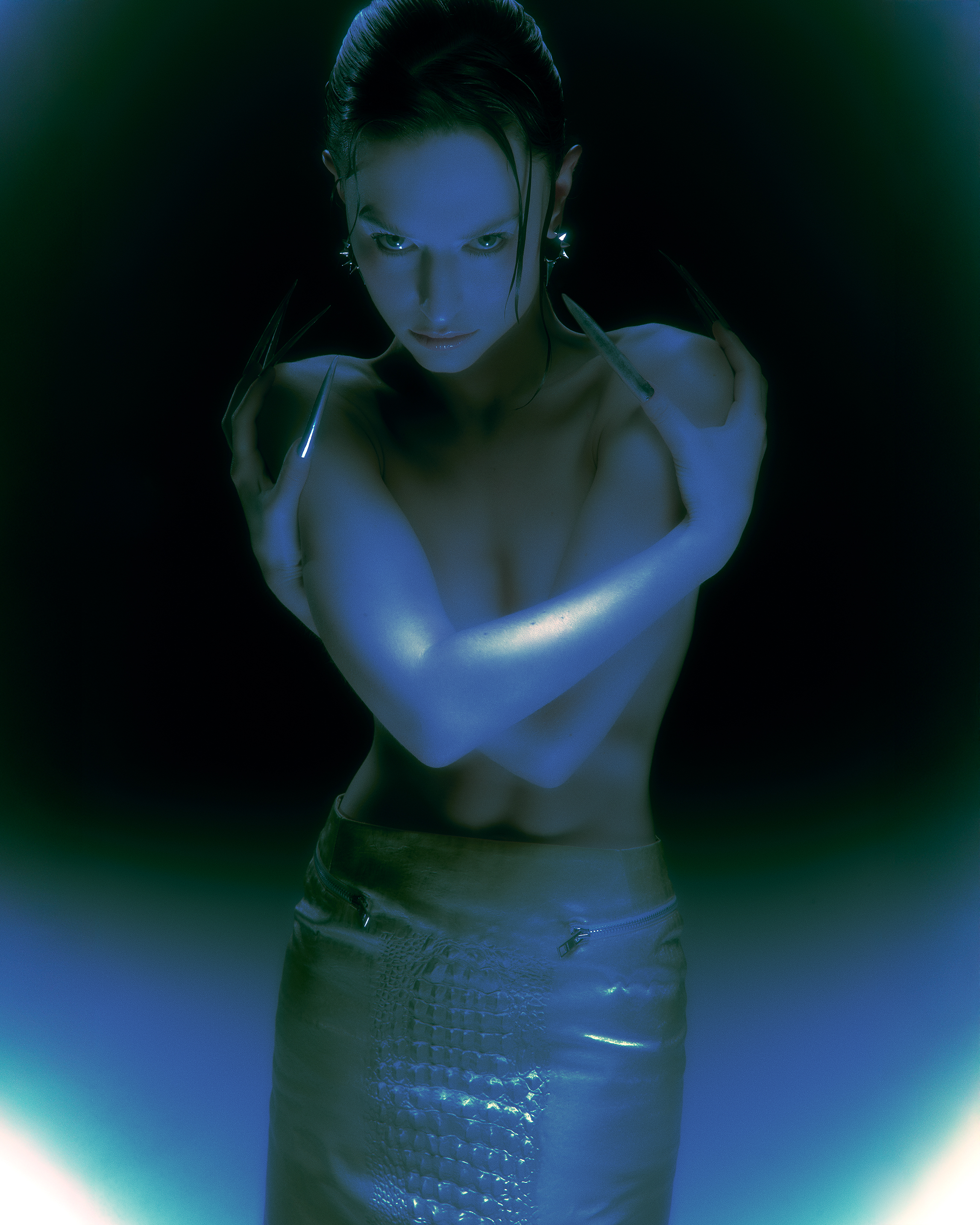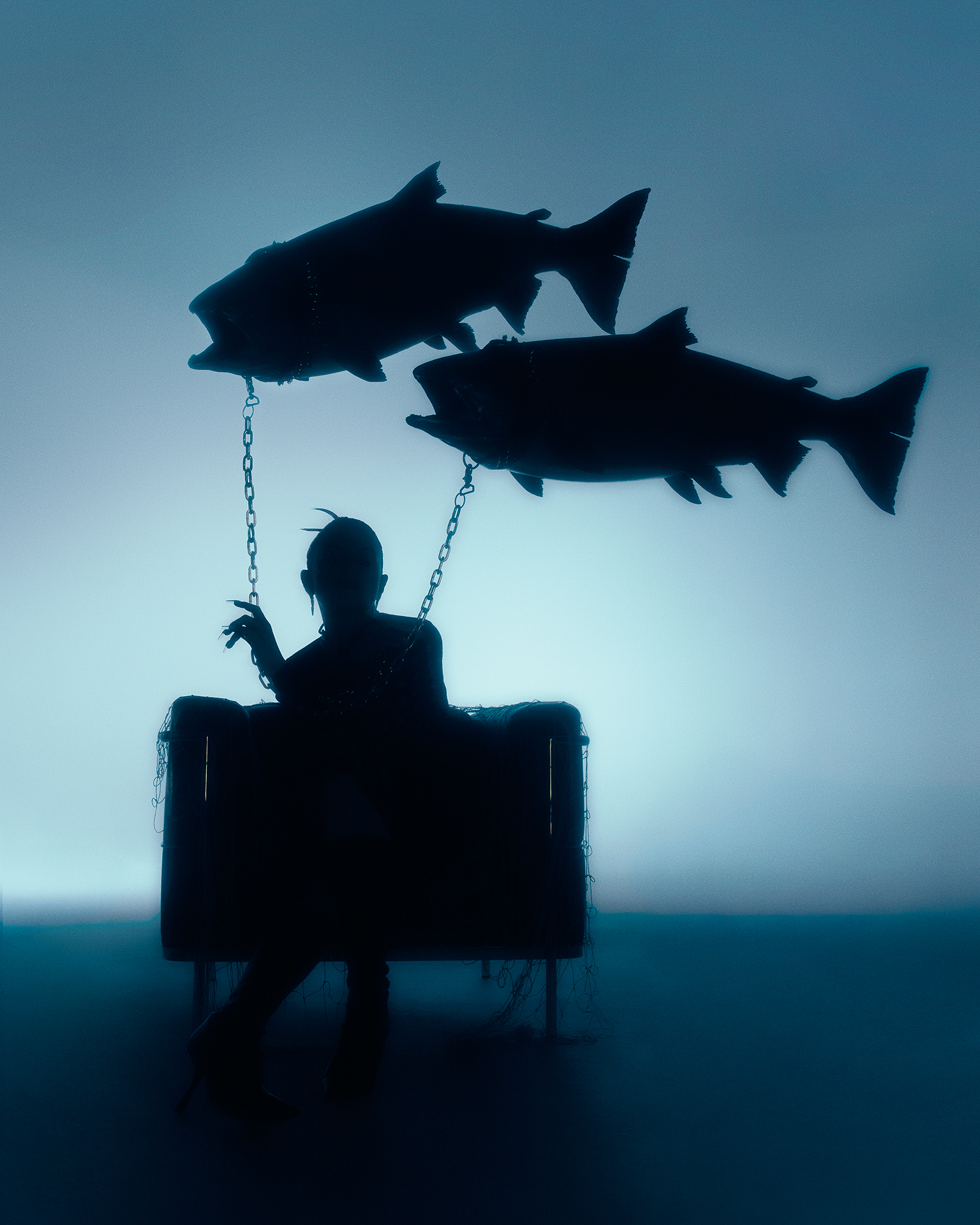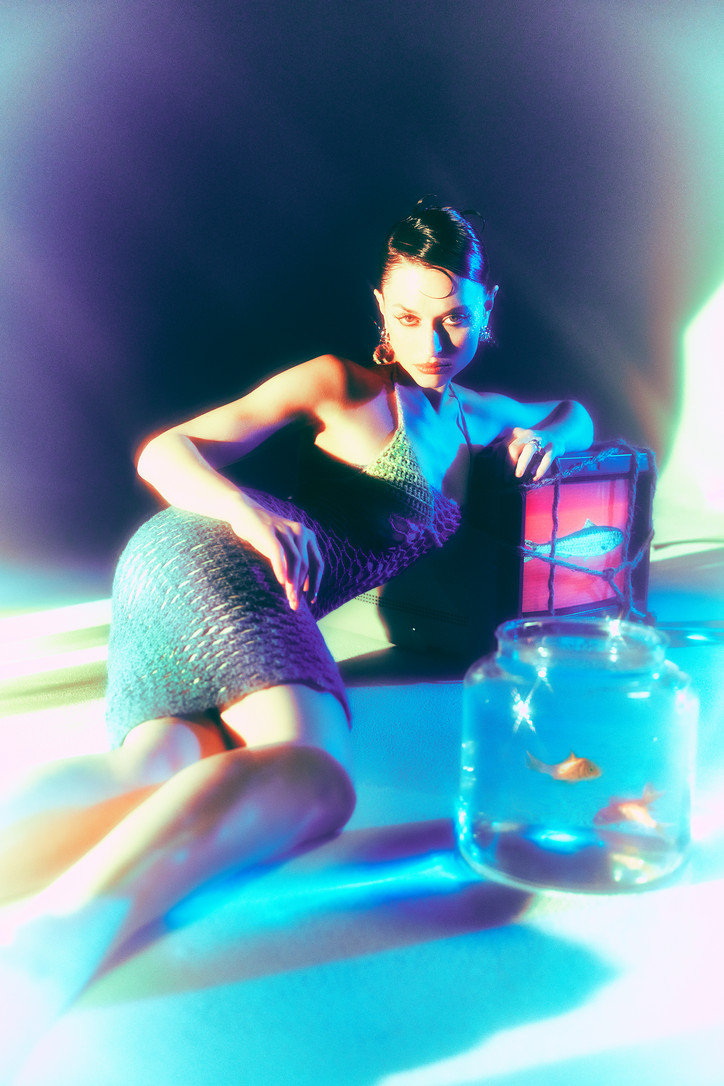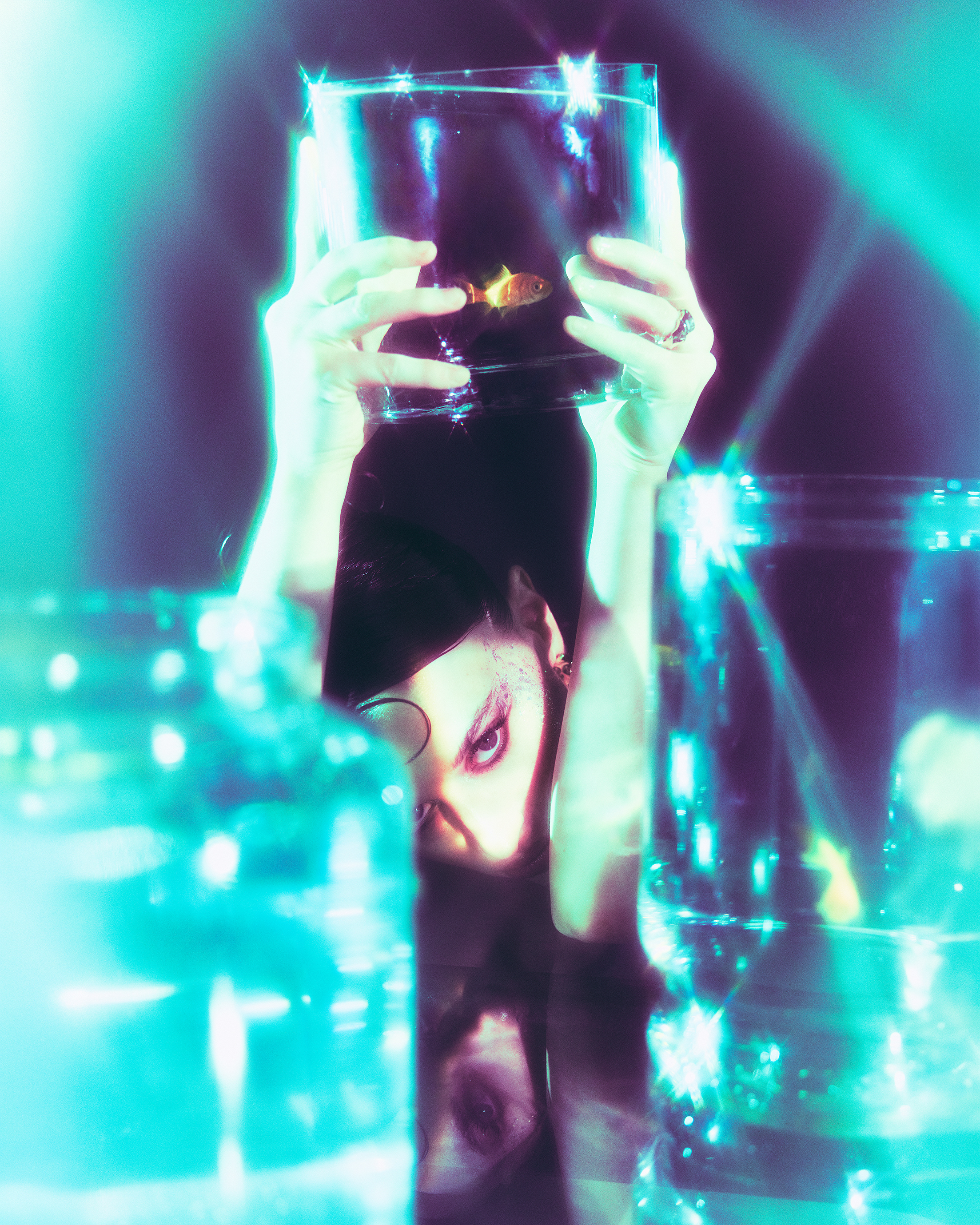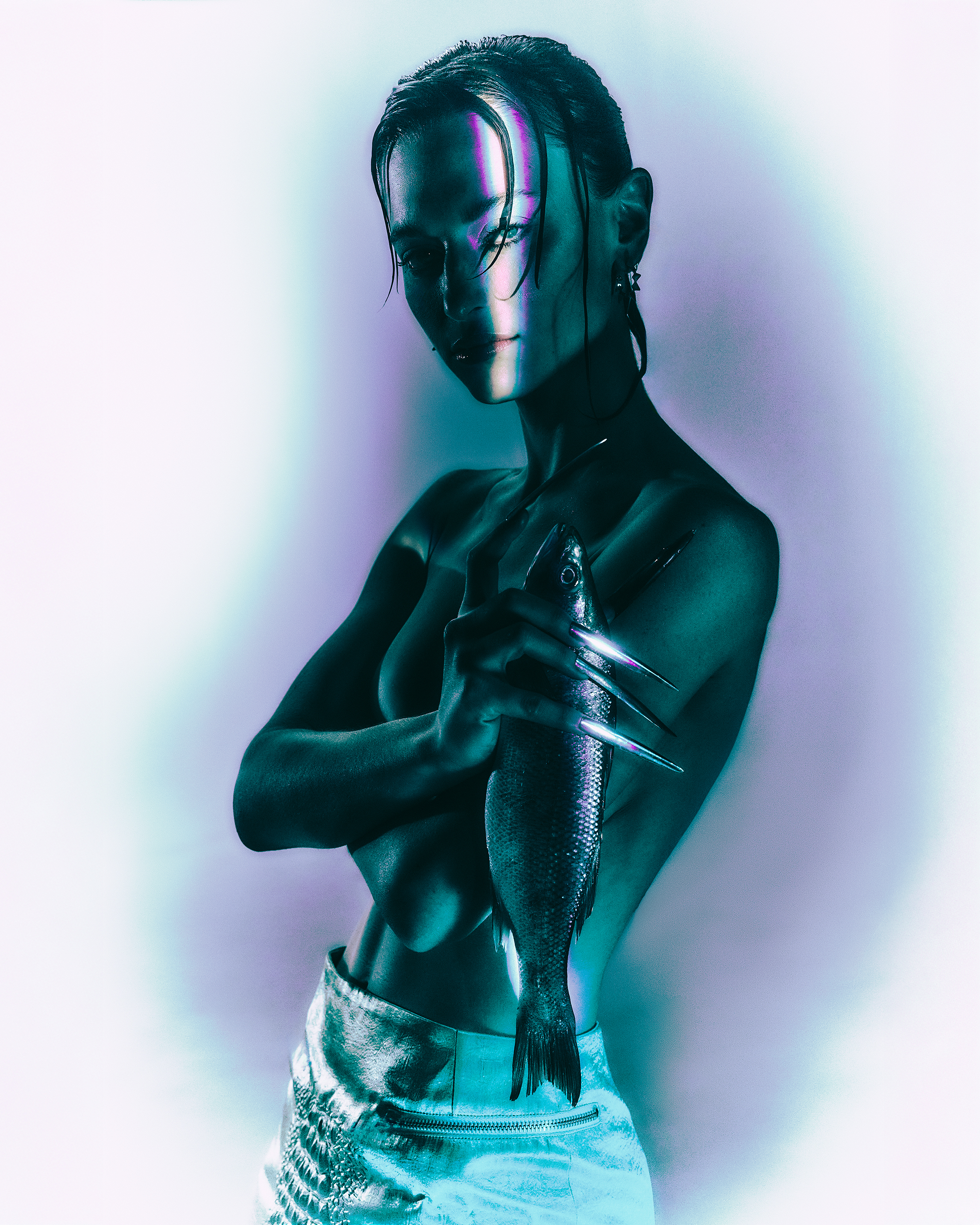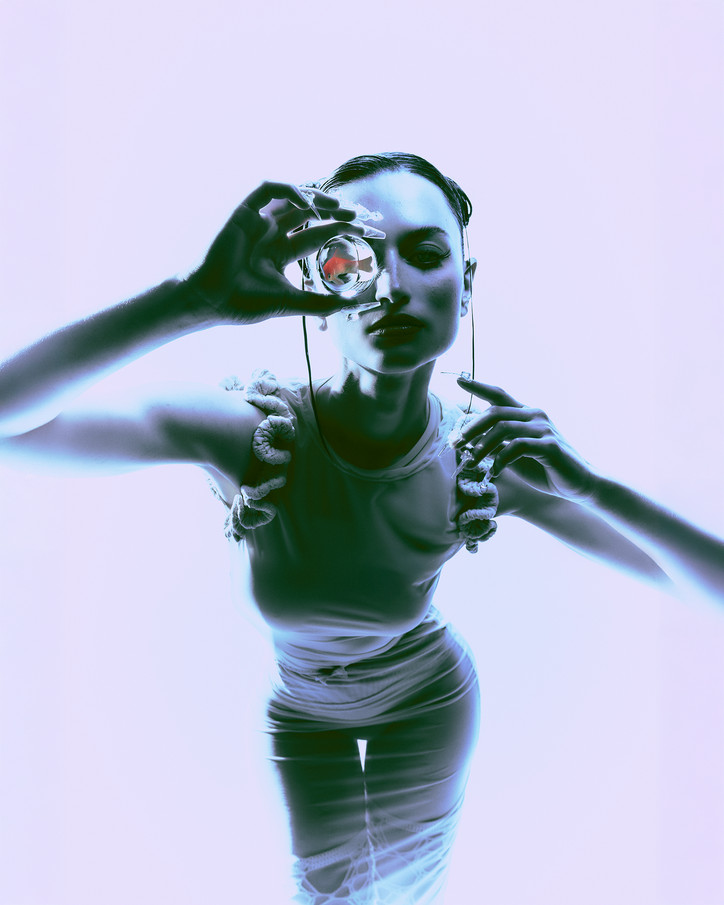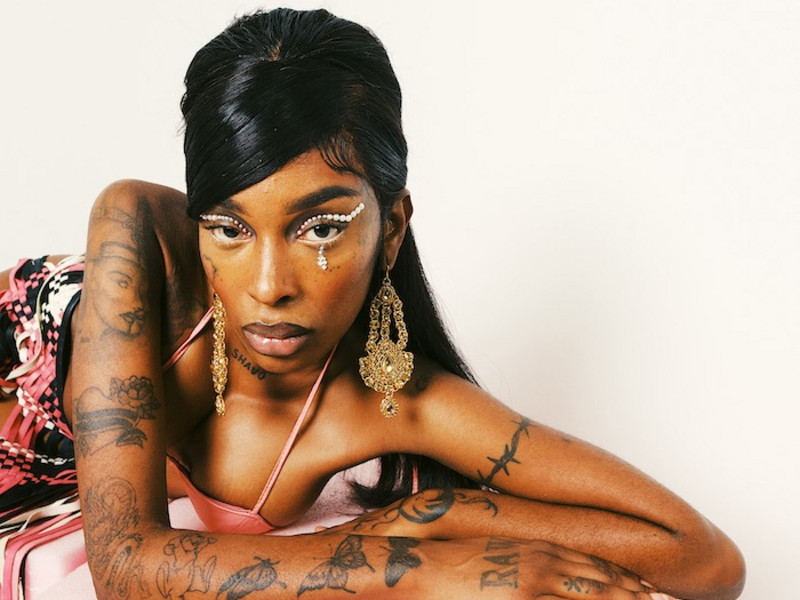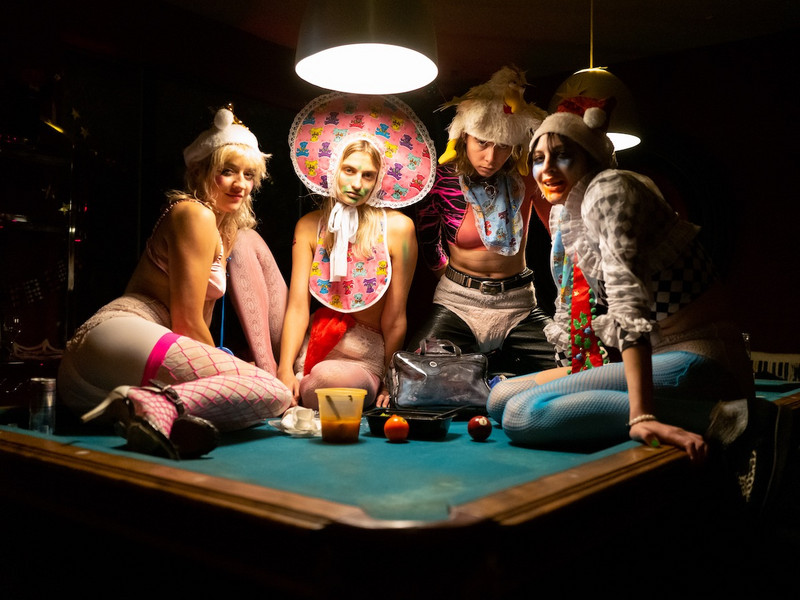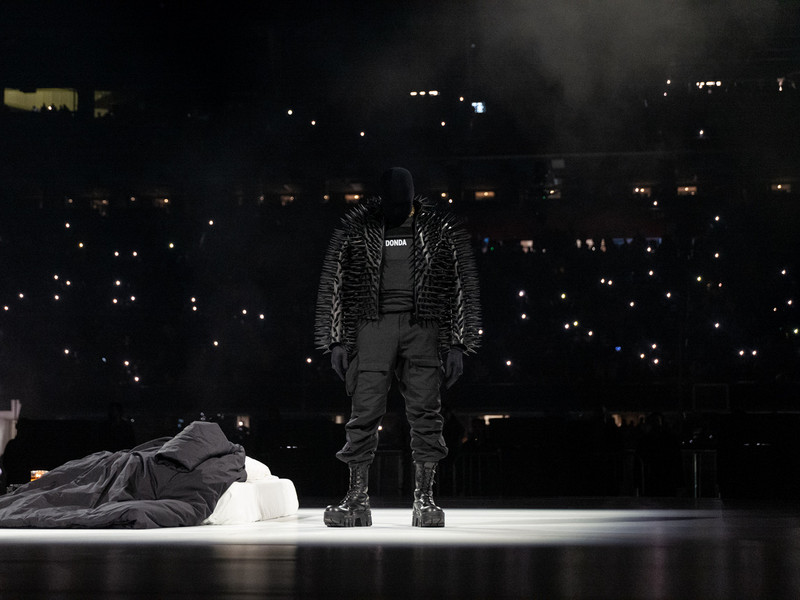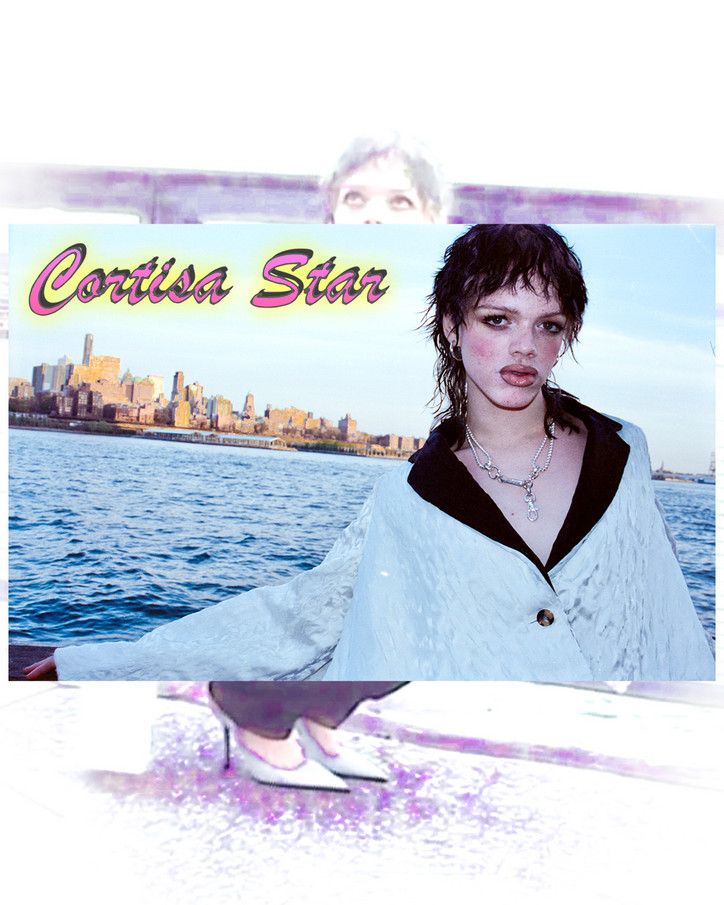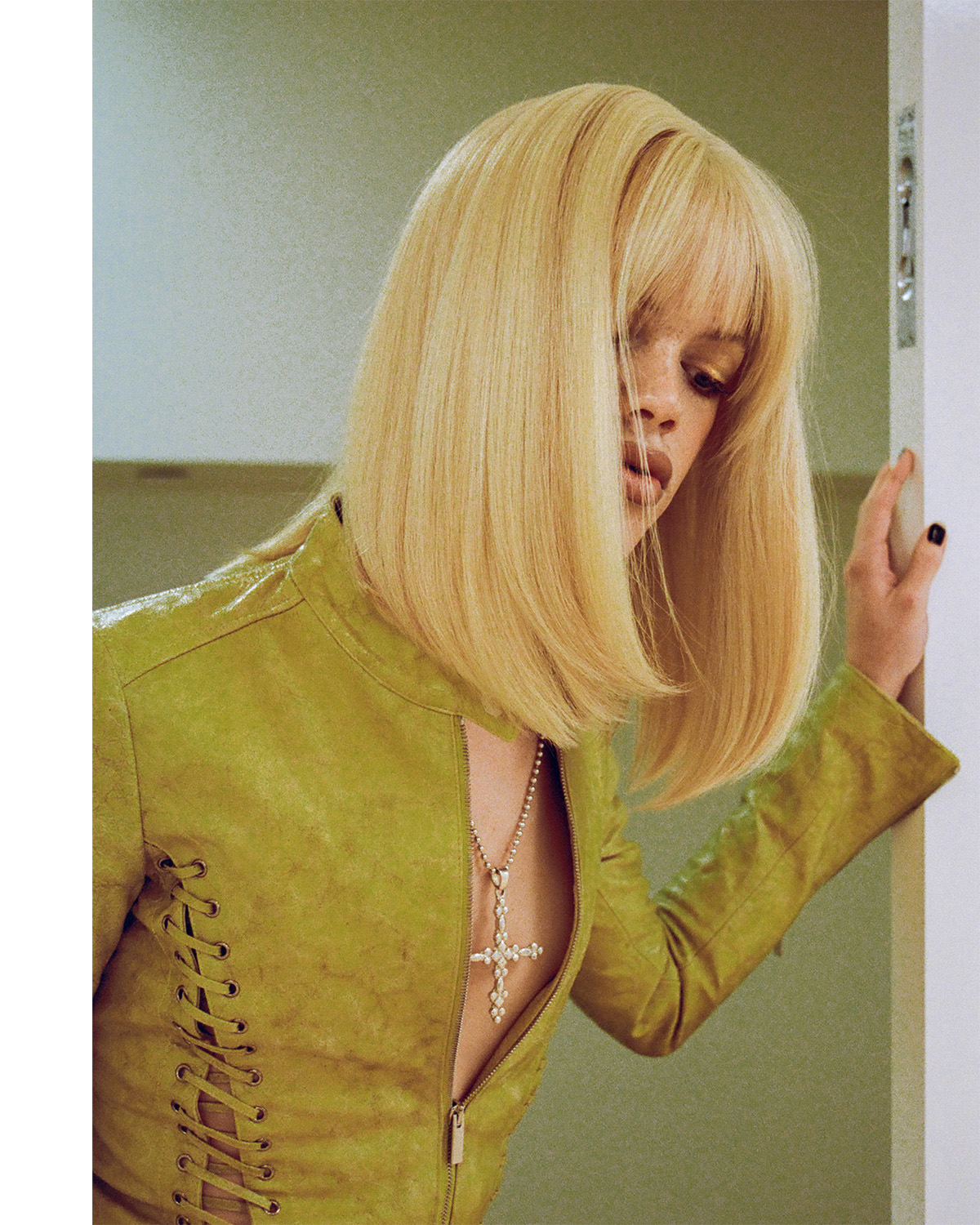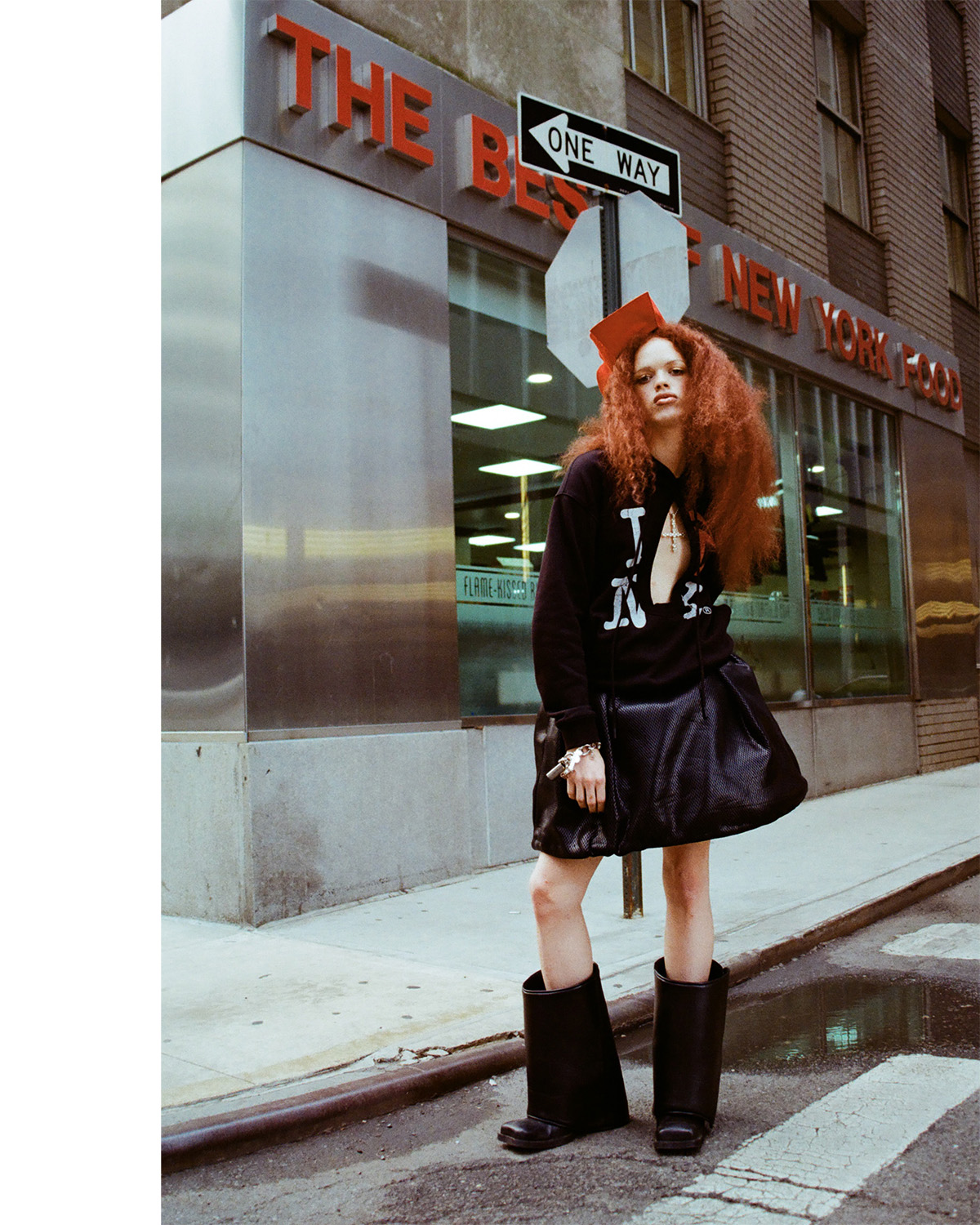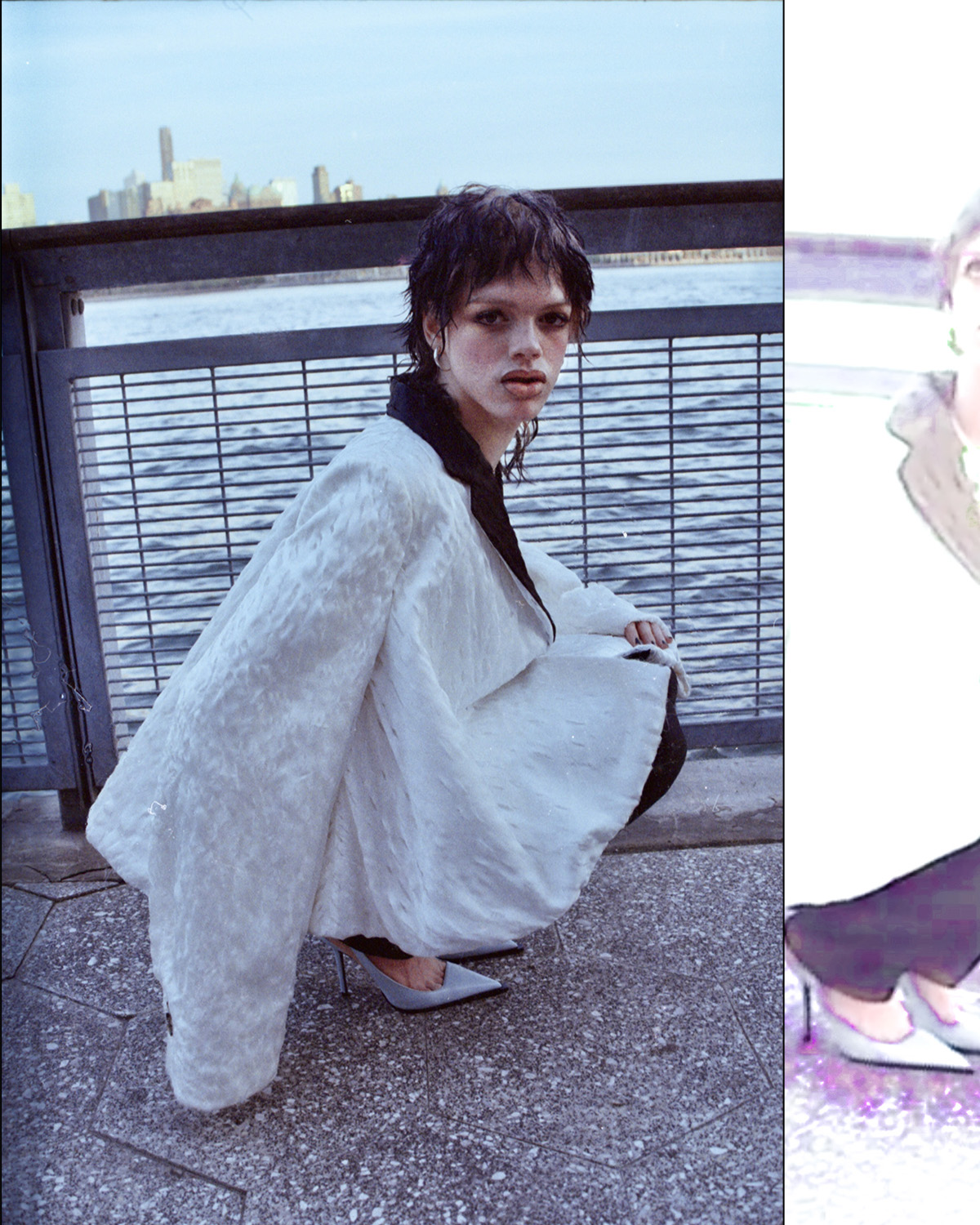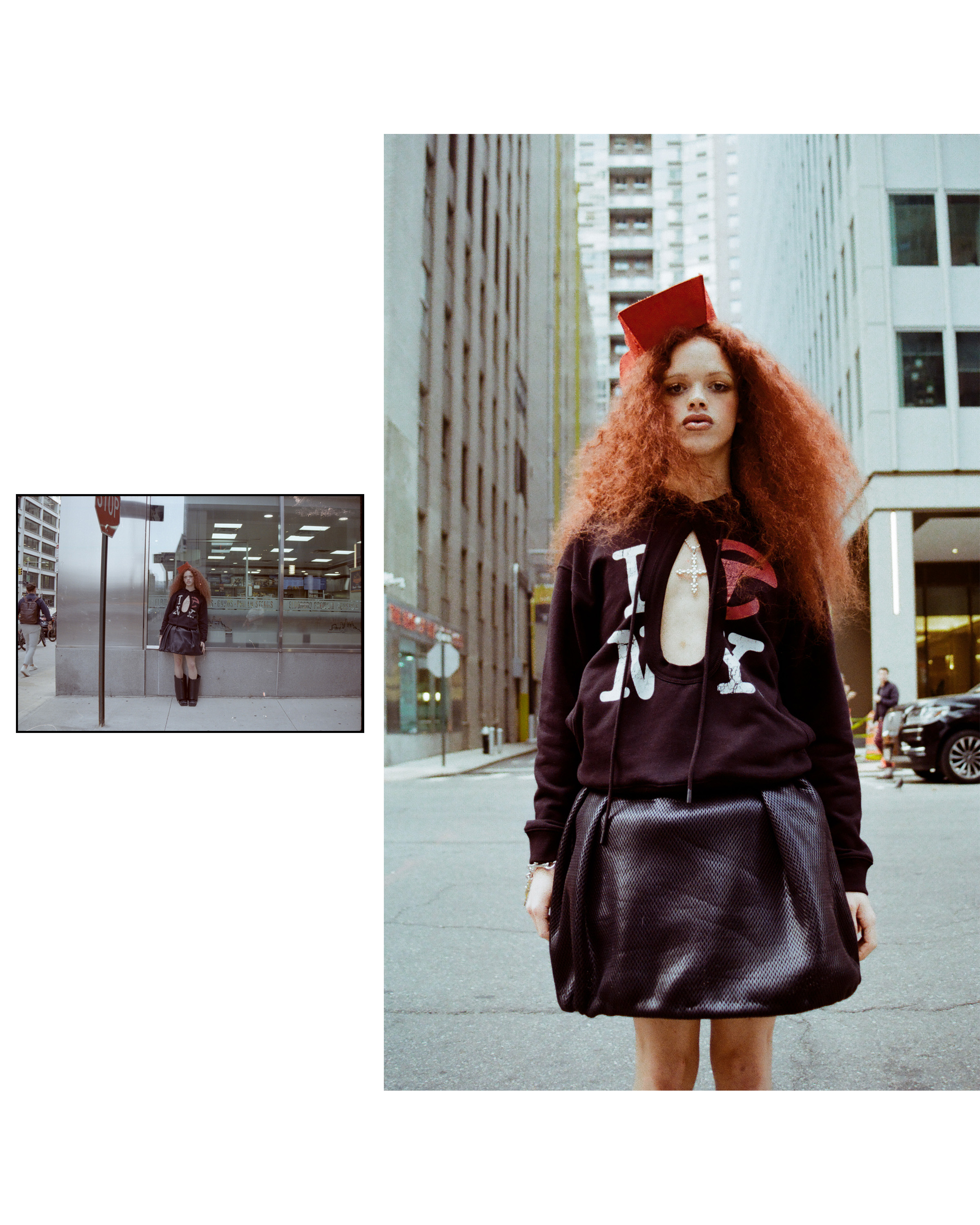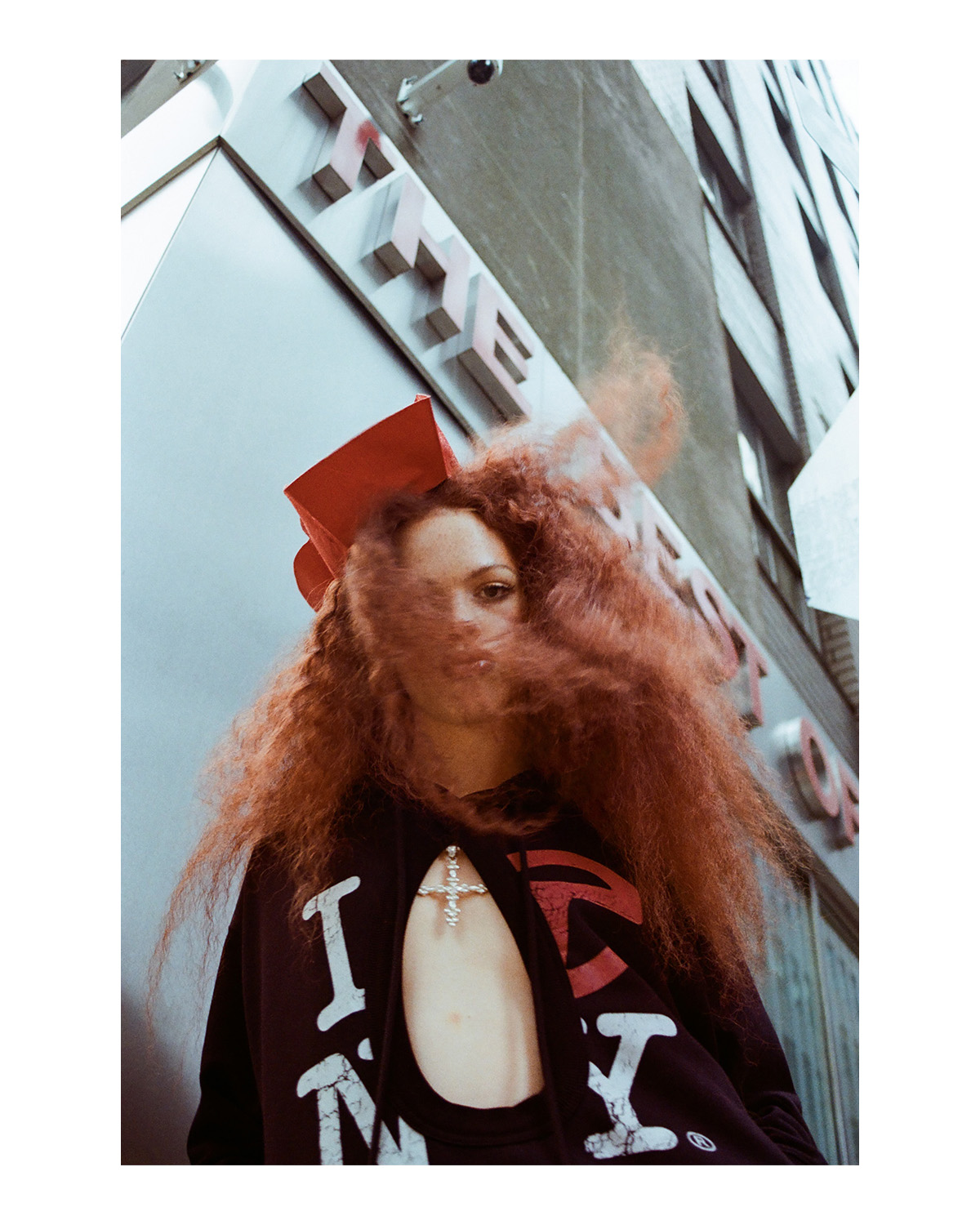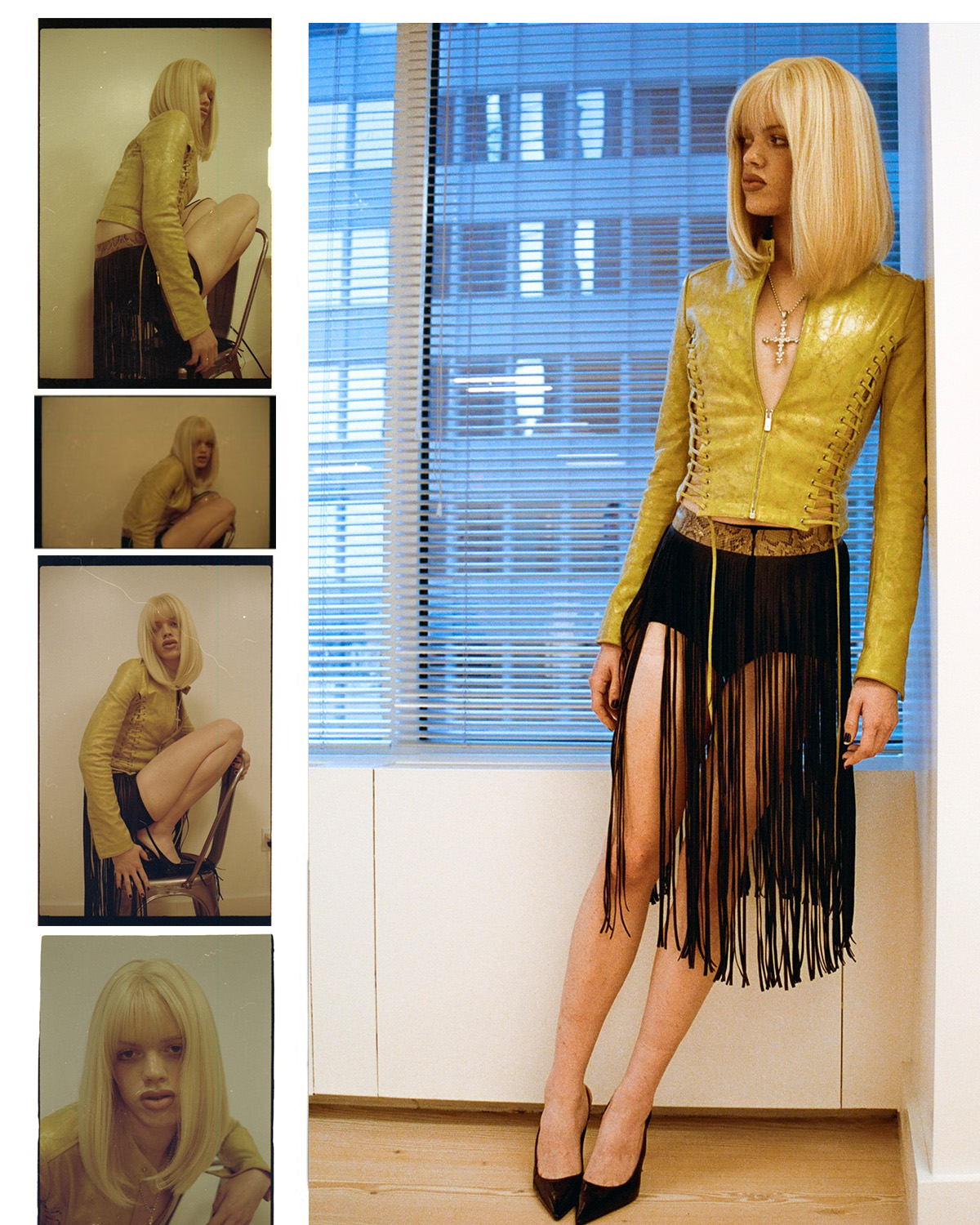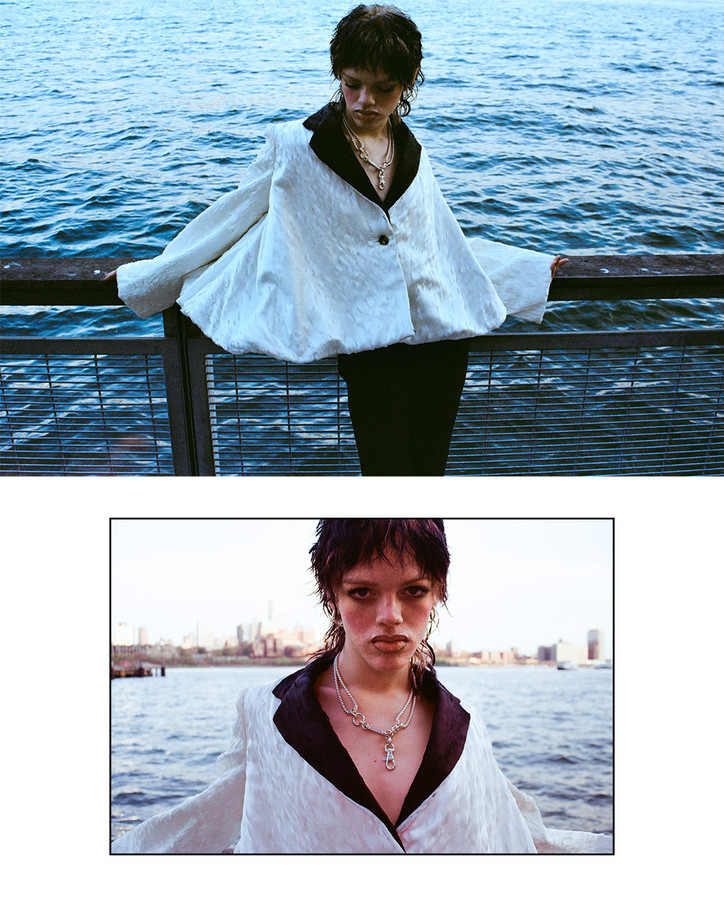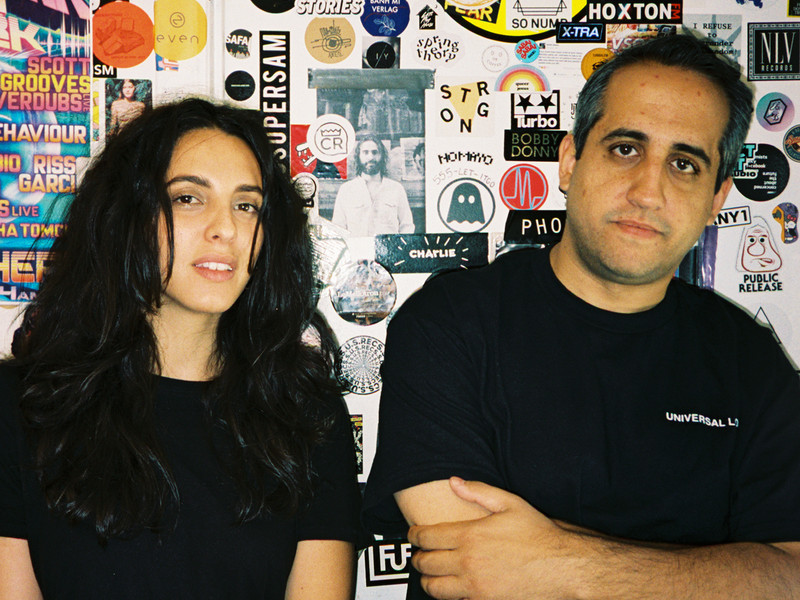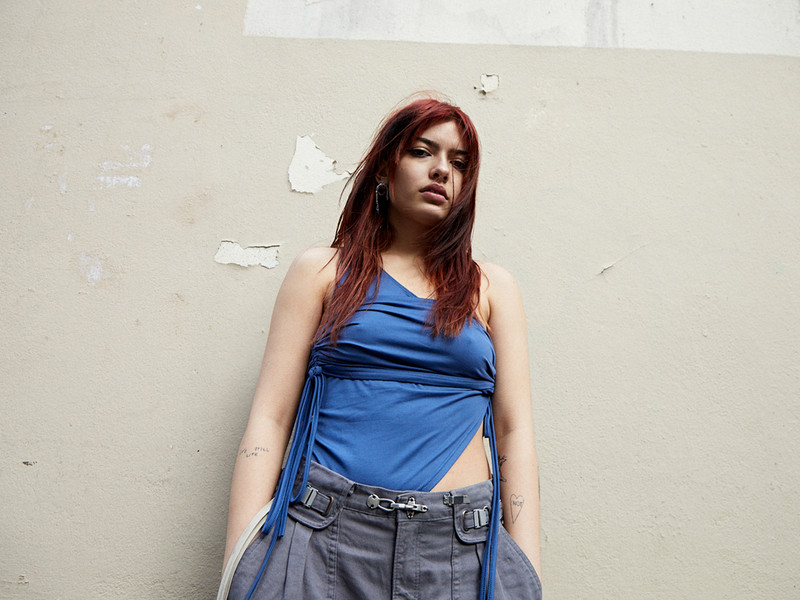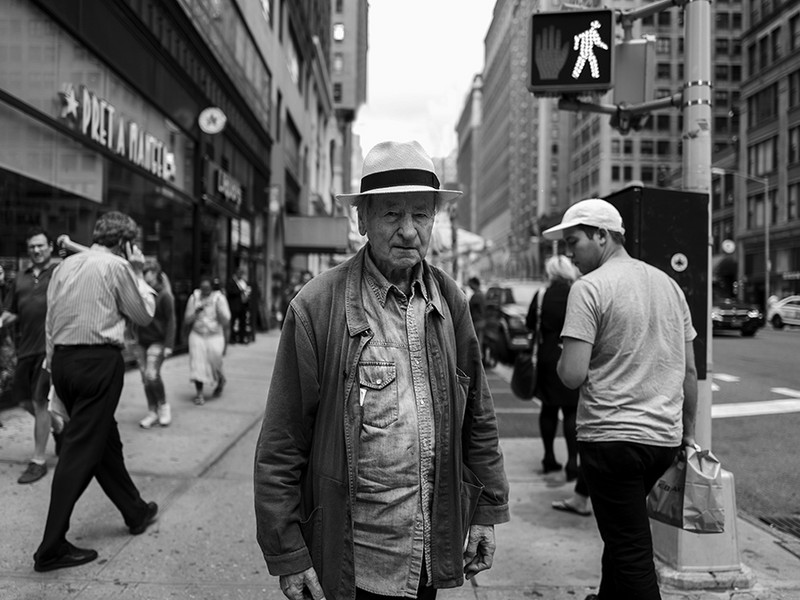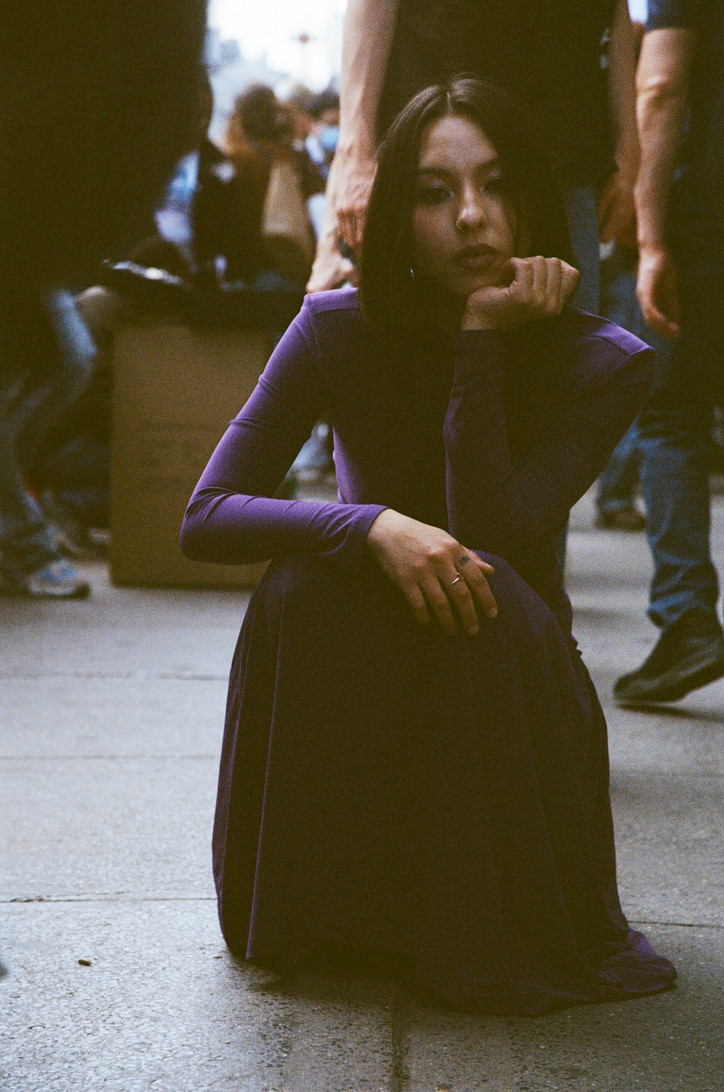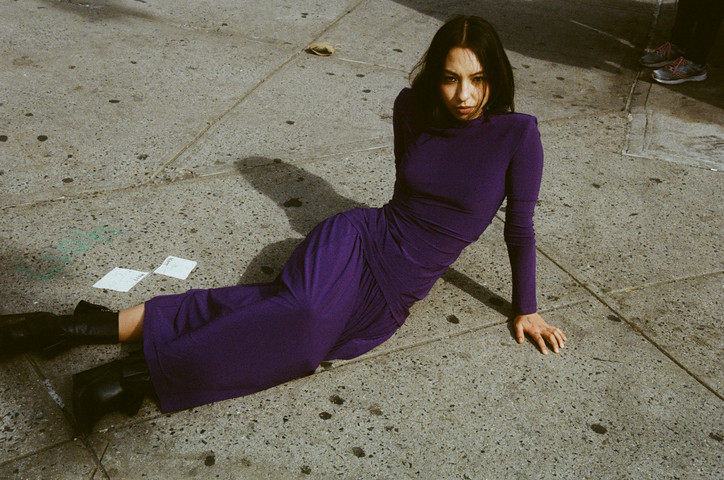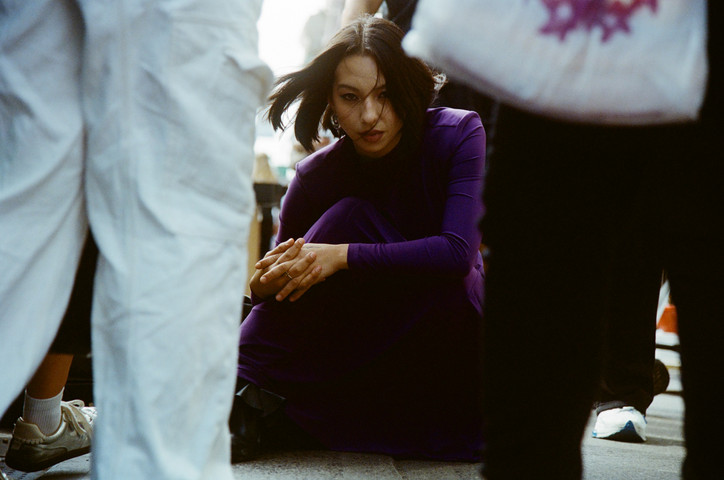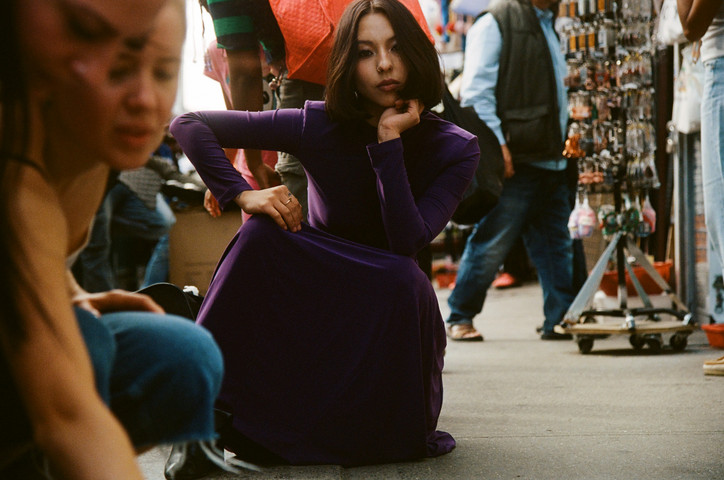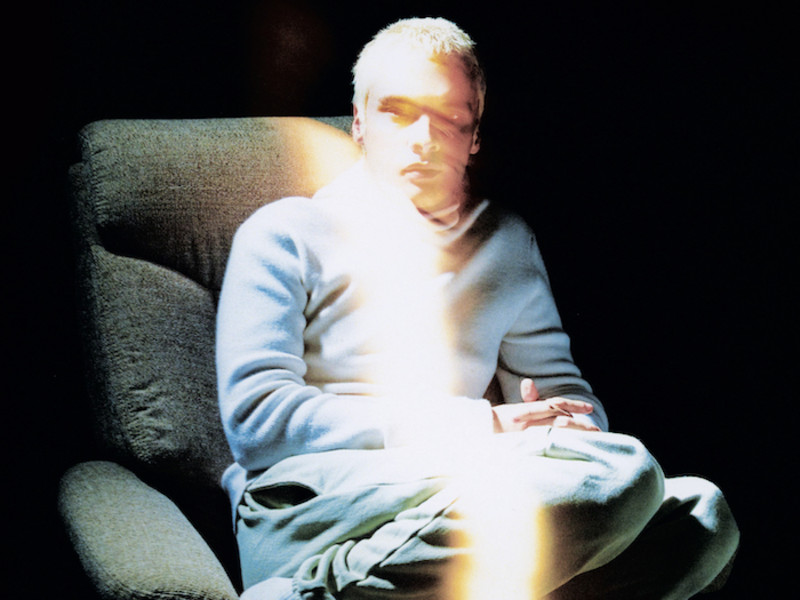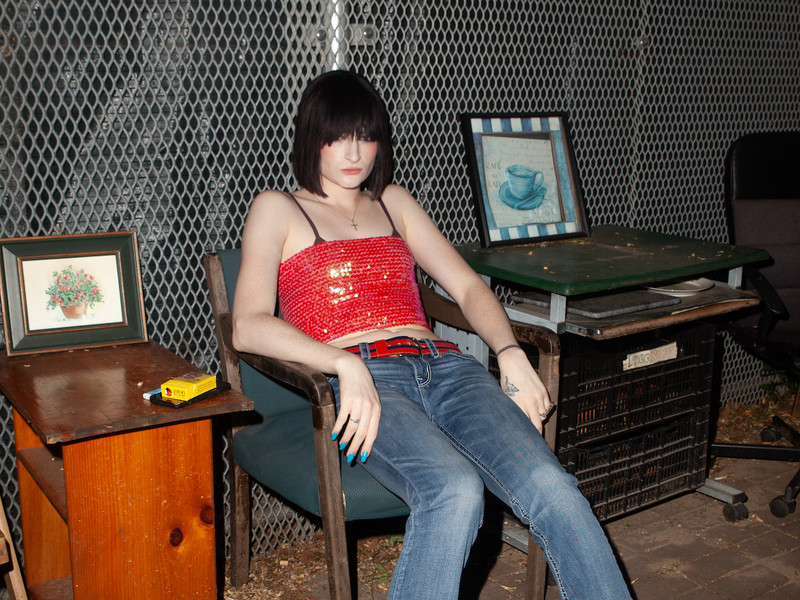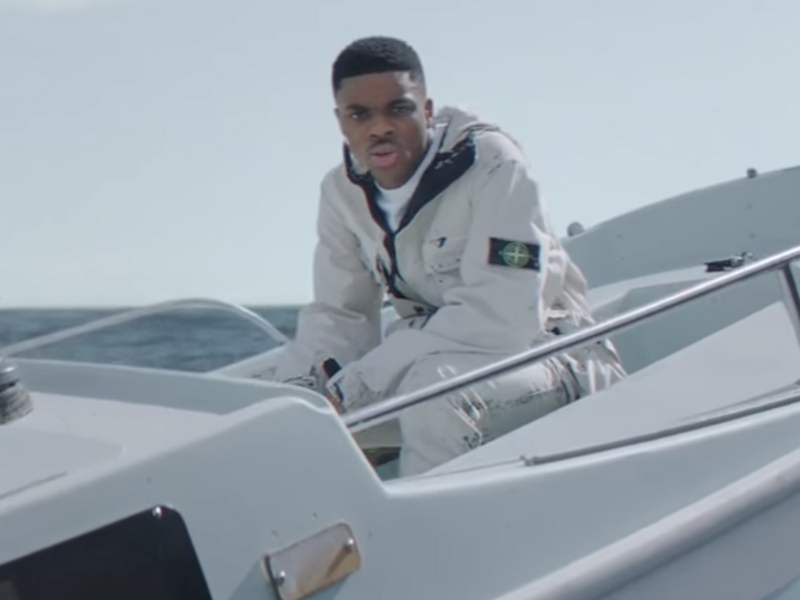"Nature's Voice is a Cry"
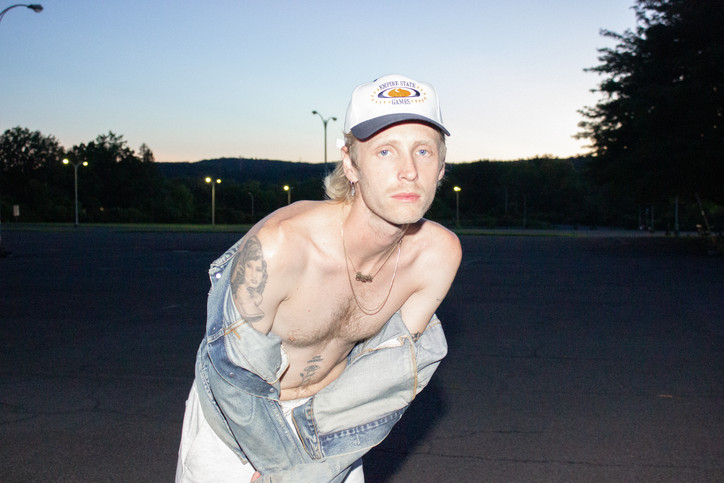
"Nature's Voice is a Cry" and its corresponding video are our entry way into Kai’s freakpop world that we will be fully immersed in when the rest of the project comes out. “I tend to think of myself as having many different personalities that don’t get along,” he explains. “Freak Pop is my self defined world that I created for myself and those personalities to live in. The people that search the nooks and crannies for safety pins and cigarette butts. The people that grew up with very little knowledge on what’s cool and what isn’t.”
Calling from his home studio in Kingston, NY, where he creates the majority of his music, Kai tells us about his hippie upbringing, his creative process, and the paths that have led him to this release. The single echoes the cries of mother earth in a three and a half minute meandering track, replete with drum machines and nostalgic guitar licks. Kai gently tosses us into the imagery of his youth:
“Walk down lover’s lane
Nothing but this gravel road
Nice night for an escapade
Promise me you’ll take it slow”
He creates this environment that to him is so personal, while also singing about a fond farewell to California, as he grows roots in the East and watches the West burn.
Take a trip with us through our exclusive interview with Emmett Kai below.
What brought you to the Hudson Valley?
I'm from, like, a super small town and every town around me, super small, and there's not a lot of action, and there's not a lot of quote, unquote “cool” stuff going on. I just met the right person at the right time who took me to New York to visit. I felt super compelled to uproot my entire life. I had nothing to lose and I was like, I got a couple grand in cash, you know, and I'm like, I'll find an apartment on Facebook and just move my entire life. And so yeah, I've kind of been here ever since. I did try to go back to California during the pandemic, like in 2020. Early, early pandemic. But then we got burned out by the fires. I just was like, literally Google searched: “Where's the safest place to live in America when it comes to natural disasters?”. And the Hudson Valley was number one on the list. I was like, Dude, what are the, you know, what are the odds? I can see my friends in Brooklyn if I want and be close to all those people, but then also have my little country life and, you know, not be bothered.
I love it there so much. Do you consider yourself a small town type of person?
For sure. I think that I thrived in ways I didn't know were possible in the city. I just didn't know what to expect when I lived there. I remember one person told me, Just give it two months, just give it two months and then you'll know for sure if you wanna stay or if you wanna leave. But I know hella fools that showed up in New York and then, like, three weeks later, moved back home, you know? And it's like, that sucks. I don't wanna be that person. So I ended up staying for three years. and it was cool, but I always knew in the back of my mind, I'm not gonna be here forever. This isn't really my vibe. My morals don't really align with city life. No shade to, you know, like I'm not throwing shade at any of my friends or anybody that lives in the city, but just like personally, I don't really vibe with the city like that. It's too much consumption, too much fast fashion. Everything's so fast, which means that things just get drowned out. There's not a lot of mindfulness when it comes to consuming things and creating things and the longevity of things. I felt this sense of urgency all the time in New York.
It’s intense.
Yeah. It was like everything that I ever did was like, it needed to be done yesterday. It was like this sense of this importance to be seen, too. I felt like everybody's looking at you, but they're not at the same time. I think when I was there, I was younger, and where I was at that point, I was just kind of like, I want to be known, and I wanna make a mark, and I wanna make an impact. And I quickly realized that everything that I have to do in the city to do that is very unattractive to me.
I feel you. And you no longer feel that way at all? Or has it just changed?
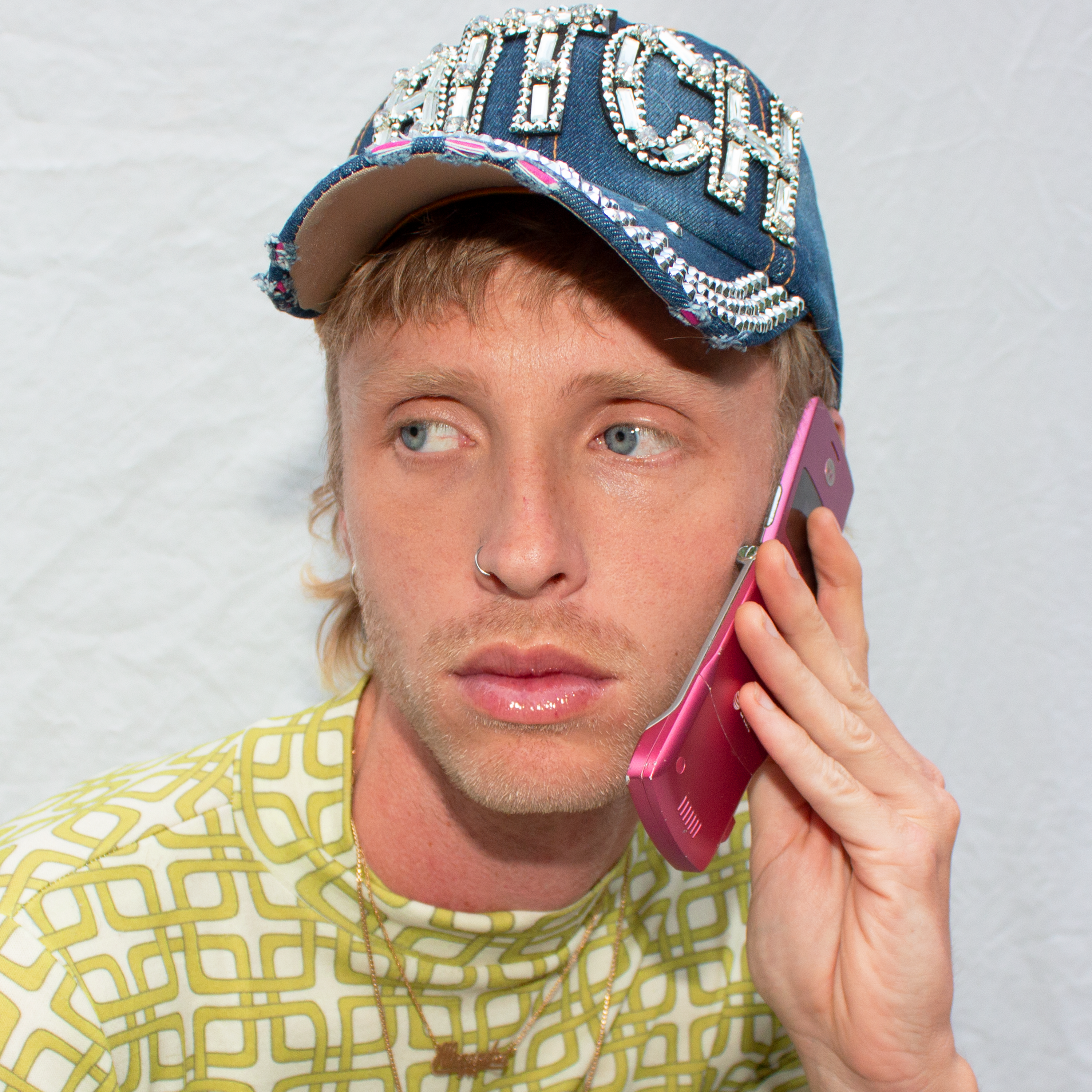

One thing that I toy with a lot is, I want to be known for my art, you know, and that's really what it comes down to, is that if I devoted my life to my art, and that's the only thing that I care about aside from my family, that's what I put most of my energy into. That's when I wake up and go to sleep, you know, I get up every morning for that—living in the city took away from that so much. I've found being isolated way more productive. Especially struggling with mental health and addiction and stuff like that. I think that living in the city was really numbing for that kind of stuff. I don't think that it was conducive to a healthy lifestyle for me. Especially trying to be sober and trying to be super level headed and make smart decisions and stuff like that. I did make smart decisions, but it just made it so much harder, and here it's like, you know, my lifestyle now is so much more focused, so much less distraction, so much more room for me to think.
But I'll tell you, it took me a good year of living here to feel actually grounded for once, and be like, I actually feel like I'm in a good place. I know who I am. Identity crisis too. I'm sure that all artists kind of struggle with identity crises. In the city, it was really apparent to me. I was just struggling, constantly. Everybody thinks they're so cool here. I mean, it's like that in a lot of cities, like in any kind of like metropolitan big city where there are artists. Where people flock to perform and there's clicks and there's scenes. I always felt like everybody thinks they're so cool here. And like, I don't necessarily think any of it's cool. I can't tell what's cool. I need to zoom out and step back to understand what I actually think is cool. ‘Cause it's all just too much. I don't know if that may makes sense or not.
No, it definitely makes sense. I'm gonna go backwards a little bit with my next question. How do you think kind of having the east coast, New York, and then growing up in California, has influenced your sound and your art?
I think that growing up in California, I had a very limited, well, it has nothing to do with California, but it has more so to do with where and how I grew up. The way that I grew up, in the area that I grew up in California, is very like, it's known for being kind of like “back to the earth” or like the “hippie rebel” kind of Cowboys, whatever, you know what I mean? It’s super rural and I never had internet growing up. So I never was exposed to like, you know, like MySpace, like—
—Pop Culture.
Yeah. Dude, like pop culture was never really in my life. It was always coming to me later when it wasn't cool, you know, or whatever it was. If you went to the skate park, you would run into somebody who was older, who was listening to something that was cool. Or maybe they were the rich kids that had lived in town and they had internet.They were downloading all this music off LimeWire, you know? And you would come up on music that way. So the only thing that I really had going on was my mom. My mom played Cocteau Twins in the house when I was growing up, my mom played Smashing Pumpkins and the Smiths. She was a huge fan of all those kinds of like eighties, nineties shoey indie rock.
That’s my shit.
Yeah, that's my shit, too. That's what I grew up on. I was born in ’92, so I missed a lot of that stuff as a super lucid adult. It always struck a chord for me. So I took that stuff, and I ran with it, and I loved that stuff, and I played in bands. The best thing that happened to me was I got expelled from my school when I was in middle school. I got forced to go live with my dad in my freshman year of high school. I went to this town called Santa Rosa, which was like a small city. I went from a school with, like, 500 kids to 2000 kids. All of a sudden, I lived in a town with diversity and streets and, you know, cigarette discount stores and, you know what I mean? And weed stores or whatever, you know, like skate shops and all these cool little nooks and crannies, just so much more stuff.
And I think through that, I found a bunch of pockets of hardcore music and punk and then, and hip hop and rap. I just thought everything was so cool. So forever, I just was indulging in all of this stuff, playing in punk bands and playing drums and then singing and then also hanging out with some kids that rapped and would learn how to make beats and all that kind of stuff. Then I got into electronic music and was DJing and taking drugs and partying and staying out till six in the morning. When I was really young, I was raving a lot.
If you fast forward through all those years, when I moved to New York, I think that I got a little more dialed in on what my sound was, ‘cause I had already gone through a bunch of stuff that was kind of just shedding all the dead skin. By the time I got to New York City and was between New York City and Brooklyn, that was the beginning of me dialing in what I’m doing. I still make rap music. I still make electronic music. My artist project is very rock based, band based, or indie, you know? And so it's like, I still have all of these things. It's just learning how to compartmentalize all of them. It was really the whole objective.
Right. So that brings us to now. Your new single, "Nature's Voice is a Cry": Where did that title come from? Could you tell me a little bit about the origin of that song?
The title is definitely a bit like climate changey. Here's the thing. At the end of 2020, we drove to New York from California. We left because the fires were just so outta control.
I remember.
Yeah. I mean, it's almost every year now, but, the fires were so outta control. This was the third time that I had dealt with the fires. I also had my partner with me, and I was like, This is so whack. I don't want you to have to go through this ever again. I want to try to build a healthy life and a healthy home base, you know? So, we left, and we came here to New York again. We got here in December and then in June I went back for my friend's 31st birthday.
I flew back to California and I had this new panic disorder that had just hit me. I just started going to therapy again. I was struggling a lot, as I think a lot of people were after the pandemic. The vaccine had just been rolled out. So I went back to California in 2021. I was driving through my hometown and everything was burned, bro. Everything was black and crazy. Charred and weird and eerie. And my buddy was like, Wasn't that drive beautiful? And I was like, Dude, not really. Like, it's actually pretty depressing. It was not what I remember as a child. So I’ve been writing about that.
For the last year, I’ve been capturing that element of me kissing California goodbye and being kind of like, Farewell. I will always identify with you and love you as a state and as a culture. And just as bringing me up as a human being, but I've gotta move on. And so when I wrote this song, it was this homage to California and, not only just California. "Nature’s Voice is a Cry" is kind of this cry out for help.
Can you speak to a particular lyric that you feel illustrates that the most?
Writing lyrics for me is super avant garde and secondary. I mean I can answer the question. Yeah. But writing lyrics for me is usually secondary. I try to write the music first. And then I come up with melodies that hit the vibe, and I'm not really saying that I'm I have synesthesia—I don't really know if I do or not—but the way that I've always put it is, I try to capture just an overall feeling. And vibe. I'll make a hundred versions of it and then I'll know which one's the right one.
The first thing I wrote down when I was listening to your song was the word "nostalgia," and I feel like that was part of what you were going for. You're thinking about growing up in California and how things used to be greener. You were a child, but—
Used to be more wet
Used to actually rain. Yeah, so you accomplished that, for sure. I wrote down “nostalgia” and “sweetness”. That’s what I thought while listening to it.
Thank you. The lyrics that say, “Walk down lovers lane. Nothing but this gravel road,” it's like the first line. My grandmother's property where we all grew up, my mother, my aunt, and a lot of my friends grew up there. It was just this super rough property that has all these outbuildings. And if you go into town and you meet any of the locals, half of them have lived there. It's always been this old stomping ground. It's very West Coast hippie, in a way, which is where I get a lot of the sound for that song. That one lyric was kind of like, you would always walk up and down the driveway and it's this long gravel road. It's the only road that's gravel too. It's like the only road that nobody's paved yet, you know? I think that it's more just imagery. I just kinda write from images.
The nostalgia definitely comes from missing stuff and missing what it used to be and not in like an old head kind of mentality, not in like a “Make America Great Again” mentality, you know what I mean? Of course not, but more, I just wish that California wasn't burning. I just wish that there was more water. Just wishful thinking. I try to capture that over and over and over again.
In terms of your creative process, like you said, you focus on the music first. Can you speak more to that, particularly for this upcoming album?
Yeah. I definitely focus on the music first. Singing was the last thing I ever did. I was always playing instruments and writing songs with other people in mind for singing or for other vocalists. My first step in the creative process is always coming up with music. When I listen to songs that I think think are inspiring or that I have on repeat, you know, I was just telling somebody the other day, actually. We were all super high, sitting around a campfire, talking about music and art and the current climate of the world when it comes to the art world and stuff like that. I was kind of going back into what I've been doing over the last couple months of just writing and producing for people and myself and whatnot. And I’ll just, whatever I have on all the time, I'll just listen to it for two weeks straight. It'll be a couple artists that are usually a vintage record or an older artist that I just really identify with. Lately I've been listening to a lot of Joan Baez. Maybe it's one measure of a song that just hits me right. I'll be like, I wish I could write a whole album off just that one moment of that song. So I'll try to do that over and over and over again. And try to harness that more and more and more.
I feel like there's a great comparison with a painter or something. Or writers, writers are like that. You just write, you know, hundreds of drafts. Or maybe not hundreds, but you know what I mean? You write hella drafts and then, like, you finally nailed it and you know, your intuition is like, oh, that's the one. Yeah, that’s the right one for sure. And so when it comes to vocals in lyrics, it's unfortunately a lot of the time, if my vocals don't sound good over it, then I usually just scrap it and it sucks. It'll be like the coolest piece of music. And I'll just be like, oh, I'm just gonna put it over here and just save it for somebody else down the road. But the lyrics are always kind of hard 'cause I really don't like writing conventionally.
Verse, chorus, verse, chorus.

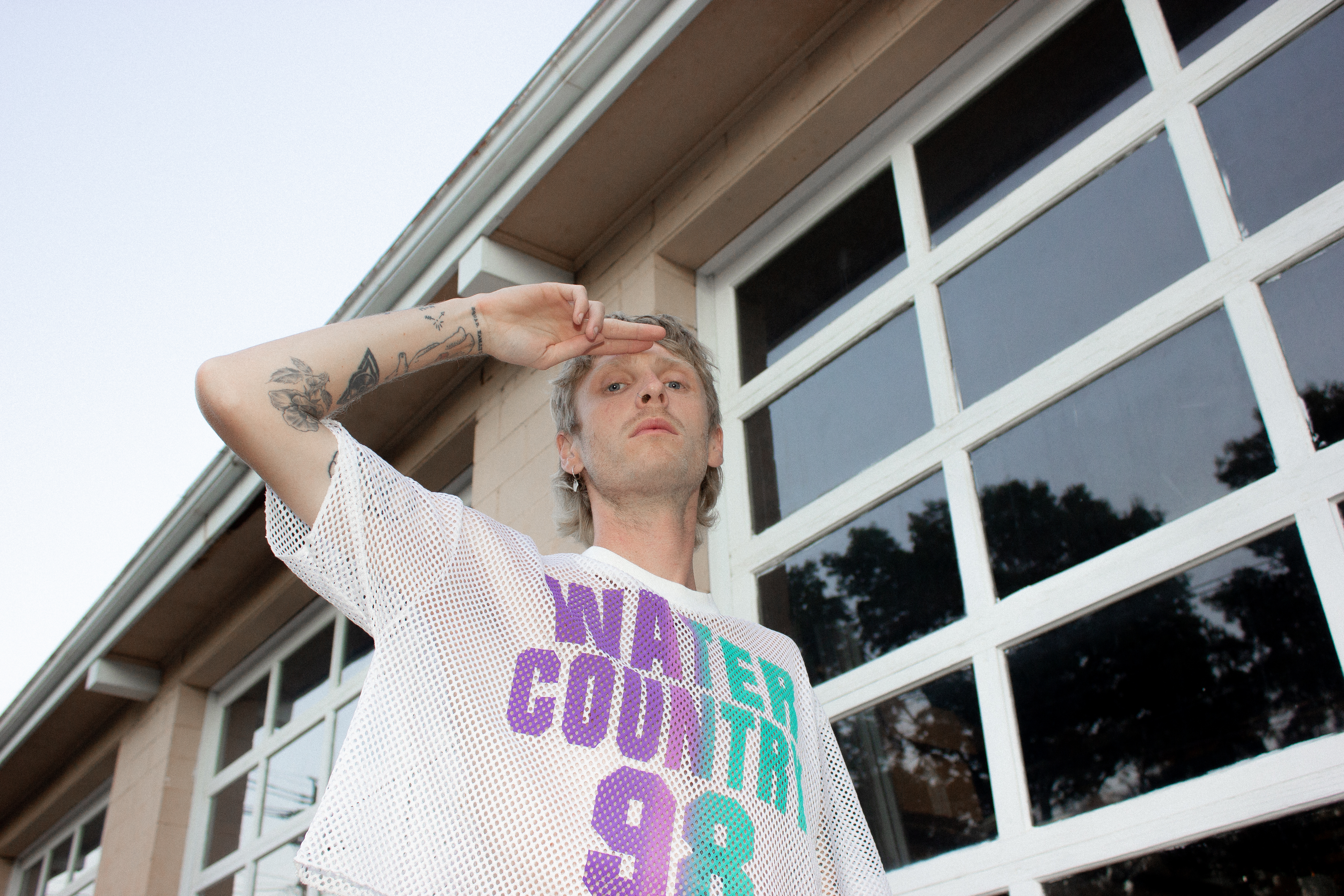
Yeah, exactly. People are always telling me I need to follow that structure, and I'm trying to get better at it ‘cause I do think it'll pay off, you know?
I also struggle with that ‘cause I'm the opposite as you. I was a writer first. So most of my songs start with poetry.
But you know what, that's the thing, I think that’s the best art. There's a whole world out there for people that are songwriters and they work on pop records and they write the new Beyonce record. And they write, you know, like Dua Lipa’s next album, or whatever. I love all that stuff, don't get me wrong, but that is a carved out formula for the masses, for sure. And that's, that's great. But when it's debatable, that's really artistic in my opinion, which is controversial, I'm sure. But a lot of the records that I love and that I listen to and that I identify with and that I, you know, find inspiring are usually, just the people have to not know what they're doing.
I actually really feel like the music you make before you understand how to do anything—when you’re not super familiar with your medium, whatever it is—and you don’t know the rules, it is easier to be much more free with it.
I totally agree. The worst thing that I ever did was try to become a professional at it. I feel like I listen to these old demos sometimes. I'm not saying I'm doomed, but like, I used to be able to write a song and play the drums, the bass, the guitar, the keys, and record it all in like a day and be excited about it. Now it takes me 30 times— 30, like that's an exaggeration. It just takes me so much longer to achieve what I have in my head. But I also think that that's because my ideas are getting a little bit more outlandish.
How so?
There's only, there's two ways I can look at it. Willa, there's one way, one way is that I'm doomed, you know? Things are getting harder for me. Or the other one is, I'm becoming more of a genius. You know?
I think it's the second one. I don't think you’re doomed.
I mean, I'm definitely not. Maybe.
Maybe you're in a transitional phase as an artist.
I think my quality of work is getting better and better. I'm really happy with what I'm writing now and what I'm actually putting out in the world. I'm only gonna give the world what I think is my best work.
How is your upcoming album differentiating from your last album, “Freak Pop Novelty”?
I thought my last album was perceived really great. It got synced on a bunch of TV shows and each song felt like a really strong single to me.
I wrote all those songs in Brooklyn. I finished them all in Brooklyn, but I started the project in California. I took a month's vacation back home where I got to use a bunch of Bob Weir's gear from the Grateful Dead.
That’s amazing. How did that happen?
It just happened. I just hit up a friend of mine who was like the youngest employee at the studios in Marin. I said, Hey, I want to do a little like solo writing trip. Could I borrow some gear? He was like, Send me a list of what you need. And when you get into town drive over to, you know, I'll tell you where to meet me. And it was very much like a drug deal. I showed up and I had to drive through a gate, they saw my face and I walked in, I drove into this location and I opened up my trunk and he loaded all the goods into the back of my car. I took off and I just recorded with them and used them.
And they all said “Weir” all over them. I got to fly back to New York with all these ideas. It was just really special. The last record just felt really right. I want six singles, I want them to all be able to stand on their own and then I'm gonna package it and I'm gonna put it out there. We pressed it on vinyl and we sold out of the vinyl real fast and it was a really good experience overall.


